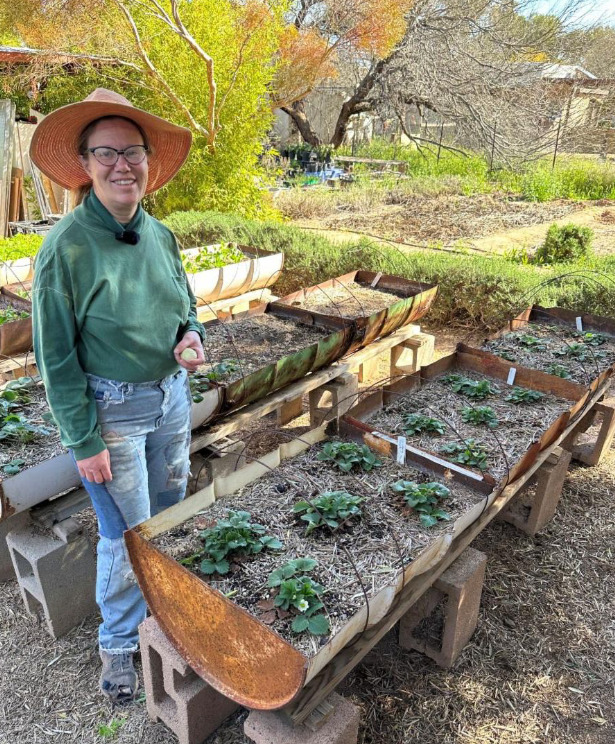Local Grower Spotlight: Dreamflower Garden
Tags: Abundant Harvest Cooperative, Community, Farmers Market, Local Growers, Stories

To enter Lorien Tersey’s home garden in Tucson is to step into a magical realm. Fruits, vegetables, and herbs fill this peaceful oasis in the heart of a city that may as well be thousands of miles away. In fact, Dreamflower—the name given to Lorien’s business—shares its name with an enchanted wood in JRR Tolkien’s The Lord of the Rings.
Lorien has been a member of the Abundant Harvest Cooperative (AHC) for over 15 years. The property was first built in the 1930s, and there remains a functioning well in addition to both a pomegranate and an olive tree that still bear fruit. Lorien and her late husband reclaimed what was essentially a junkyard in the rear of their property, or as Lorien puts it, “Where Subarus went to die.” They also acquired an adjacent parcel of land that was once hard-packed dirt but now supports rows of wheat, oats, garlic, and other vegetables. Adjacent to rows of newly arable land is a greenhouse sheltering herbs and plant starters, with the inclusion of several tomato plants. The total used area comes to around a third to a half of an acre, enough for Lorien to get around 40% of her entire diet from her own property!
Lorien and the Dreamflower enterprise demonstrate the possibilities that arise from neighborly collaboration. For instance, her next-door neighbors host a chicken coop that Lorien runs. In exchange for the land, the neighbors are entitled to as many eggs as they want. The true financial benefit of her chickens is wrought via compost. “I take my profit in poo,” Lorien said. Yet not every aspect of life needs to be profitable. Lorien displays a wealth of knowledge about the chemistry and physics of agriculture, gladly sharing facts that she learned while taking courses at Pima Community College and through hands-on experience.
The past few years have been difficult for Lorien, confronting the challenges of COVID-19. In her words, she is most looking forward to re-immersing herself in the work of gardening. Tending to and caring for her plants and chickens are life-giving activities. A major benefit of engaging with the natural world through a garden or farm is processing loss and grief. Change and rebirth are made physical by the cycle of seasonal actions: planting, growing, and harvesting.

